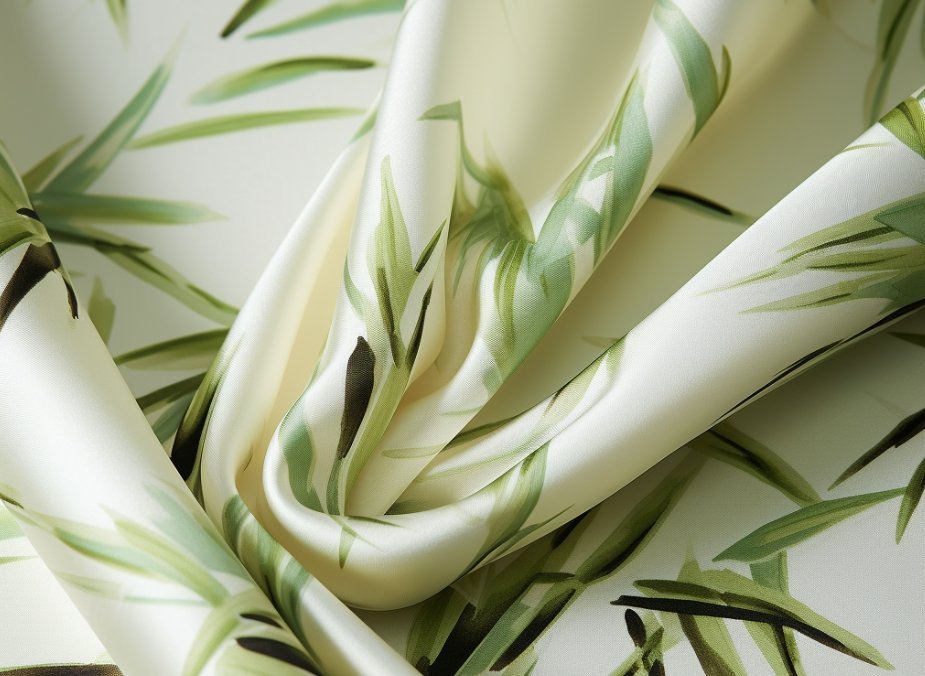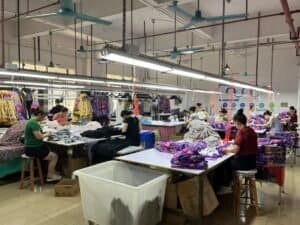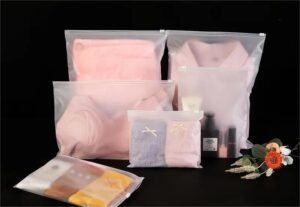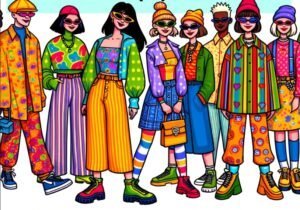As the CEO of Natural Touch Clothing, I’ve had the privilege of delving deep into the fascinating world of textiles. Our business, based in China, specializes in high-quality clothing customization, and one material that has caught my attention over the years is bamboo fabric. Join me on this journey as we explore the wonders of bamboo fabric and why it’s gaining recognition among clothing connoisseurs worldwide.

The Rise of Bamboo Fabric
In the fashion industry, trends come and go, but sustainability is here to stay. As a factory with five production lines, we understand the importance of eco-conscious practices. Bamboo fabric is at the forefront of this movement, and it’s no surprise why.
What Exactly Is Bamboo Fabric?
Bamboo fabric, also known as bamboo viscose or bamboo rayon, is a textile derived from the pulp of bamboo plants. It’s a natural fiber, making it an eco-friendly choice for those who want to reduce their environmental footprint. Let me break down what makes bamboo fabric so unique:
- Sustainability: Bamboo is one of the fastest-growing plants on the planet. Unlike traditional cotton, which can deplete resources and harm the environment, bamboo regenerates quickly and requires minimal water and pesticides. This makes bamboo fabric an excellent choice for environmentally conscious consumers.
- Softness: Bamboo fabric is often described as incredibly soft and luxurious. It has a silky texture that feels gentle against the skin, making it a favorite for clothing items like pajamas and intimate wear.
- Breathability: Bamboo fabric is highly breathable, making it perfect for warm weather. It wicks moisture away from the body, keeping you cool and comfortable even on hot summer days.
- Antibacterial Properties: Bamboo has natural antibacterial and hypoallergenic properties. This means that bamboo fabric helps resist odors and is an excellent choice for people with sensitive skin.
- Versatility: Bamboo fabric can be used for a wide range of clothing items, from dresses and skirts to t-shirts and sweatshirts. Its versatility and adaptability have contributed to its popularity among clothing manufacturers like us.
The Bamboo Fabric Production Process
Producing bamboo fabric involves several steps, and it’s essential to understand this process to appreciate the qualities of the final product.
- Harvesting: Bamboo is harvested and then broken down into pulp through a chemical process. Sodium hydroxide and carbon disulfide are typically used to dissolve the bamboo into a viscous solution.
- Extrusion: The viscous bamboo solution is then forced through spinnerets to create bamboo cellulose fibers. These fibers are stretched and solidified into threads.
- Spinning and Weaving: The bamboo threads are spun into yarn and woven into fabric. The weaving process determines the final texture of the fabric, whether it’s smooth, silky, or textured.
- Dyeing: Bamboo fabric can be dyed using both natural and synthetic dyes. Its absorbent nature allows it to take on vibrant colors.
- Finishing: After dyeing, the fabric undergoes finishing processes to enhance its softness and durability. This ensures that the bamboo fabric retains its luxurious feel even after multiple washes.
Advantages of Bamboo Fabric
From a business perspective, we’ve found that bamboo fabric offers several advantages that align with our commitment to quality and sustainability:
Sustainability Sells
Sustainability is not just a buzzword; it’s a selling point. Today’s consumers are more conscious of the environmental impact of their choices than ever before. By offering bamboo fabric products, we cater to a growing market of eco-conscious shoppers.
Luxurious Comfort
Bamboo fabric’s softness and breathability make it a hit with customers. When you choose bamboo fabric for your clothing line, you’re offering your clients a luxurious and comfortable experience they won’t forget.
Versatile Applications
Bamboo fabric’s versatility is a significant advantage. Whether you’re designing casual wear, activewear, or even corporate attire, bamboo fabric can be adapted to various styles and needs.
Natural Antibacterial Properties
In a post-pandemic world, hygiene is paramount. Bamboo’s natural antibacterial properties provide an extra layer of protection for your customers, making it a great choice for innerwear and activewear.
Meeting the Demand
As the CEO of Natural Touch Clothing, I’m proud to say that we’ve embraced the bamboo fabric trend wholeheartedly. Our B2B, wholesale, and custom clients have recognized the value of bamboo fabric, and we’re delighted to provide them with high-quality bamboo-based products.
Our commitment to sustainability doesn’t stop at the fabric itself. We also ensure ethical and eco-friendly manufacturing processes, further solidifying our position as a leader in the industry.
Conclusion
Bamboo fabric is more than just a trend; it’s a sustainable, luxurious, and versatile choice that’s here to stay. As the CEO of Natural Touch Clothing, I’ve seen firsthand the positive impact it has had on our business and our customers.
If you’re in the clothing industry, I encourage you to explore the possibilities of bamboo fabric. It’s a choice that not only benefits your business but also contributes to a greener, more sustainable future.





